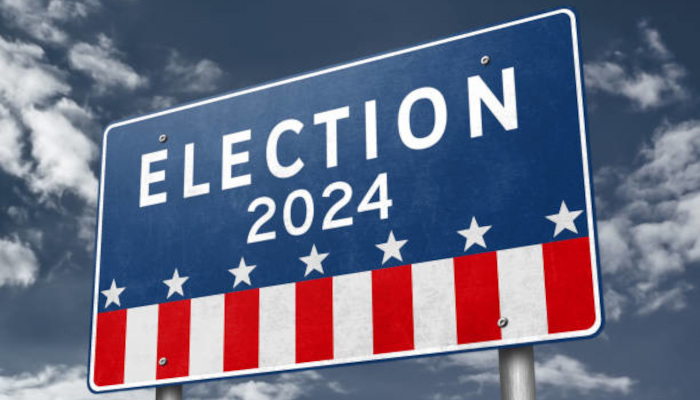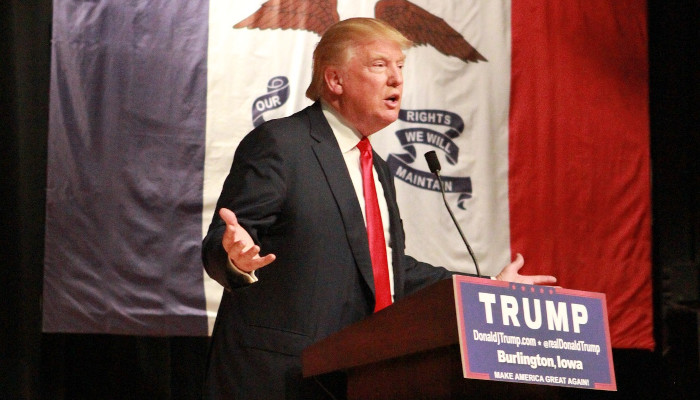
Donald Trump is sinking in the opinion polls behind Kamala Harris, but the game is far from over
The political landscape remains fluid as Donald Trump faces a significant decline in opinion polls, trailing behind Vice President Kamala Harris. The margin between the two candidates is slim, and with two months to go before the election, Trump still can regain lost ground and return to the presidency.
Evaluating Trump’s legacy from his first four years reveals crucial missteps that continue to haunt his political ambitions.
Firstly, during the early 2020 outbreak of COVID-19, Trump should have taken decisive action to cut off China from the rest of the world, like the responses during the 2003 SARS outbreak. It was clear even then that for China, economic activity was fundamental. Thus, if President Xi Jinping had implemented strict citywide lockdowns cutting down production and consumption, then it meant that the Chinese situation was extraordinarily dire and otherwise unsustainable. If Trump had thus cut off China’s exchanges, as it happened in 2003, the world might have skirted or vastly limited a global pandemic.
Had Trump enforced such measures, politics today would likely be different. The consequences of his inaction remain speculative, but one certainty is that his decision was driven by a desire to bolster the economy in hopes of securing reelection. He struggled to confront the nation with the harsh realities of the pandemic and advocate for the complex measures necessary in response to an unexpected crisis. The results speak volumes: Trump ultimately lost the election as the 2020 global economy faltered over the 10 to 11 months leading to the vote, dragging his approval ratings down.
In hindsight, a more proactive approach was within reach. To adopt such a stance, Trump would have needed the foresight to understand that propping up the economy during a widespread pandemic was unsustainable. He required the fortitude of leaders like Winston Churchill, who communicated the tough times ahead during World War II.
The second critical error was his refusal to concede the election. Trump resisted the peaceful transfer of power, even to the extent of inciting or condoning a violent demonstration that culminated in something like an attempted coup on January 6, 2021. Had he not done so, he would likely be in a stronger position now, as many Americans view his agenda as more favorable than the Democrats on various issues. However, once again, his lack of vision is evident. He failed to realize that the stakes were not only about maintaining power but also about paving a path for a potential comeback in four years. He did not comprehend that the American political system would not tolerate the denial of election results. Consequently, he not only lost power but also created a significant weakness for his current reelection campaign.
Trump’s ongoing inability to adapt is still evident. For months, he focused on President Joe Biden, criticizing his age and performance, yet he failed to plan effectively for the possibility of a Harris-led campaign. As she entered the political arena, Trump found himself unprepared, seemingly unable to formulate a strategy to contend with her presence.
He appears to lack the strategic foresight necessary to navigate sudden, unexpected developments. Without the ability to convert adversity into opportunity, he risks further marginalization.
A Different Future?
This ongoing issue also extends to Trump’s vision for the future. He has expressed a desire to negotiate a diplomatic deal with Russia regarding foreign policy. Yet, the situation is precarious for the Kremlin, especially as Ukrainians demonstrate resilience in the conflict. The recent offensives around Kursk serve as a testament to this shift. Reports since March have indicated Ukrainian forces probing the area, with preparations underway for potential action; yet there has been little response from Russian forces.
The apparent inaction may indicate more than just an intelligence failure on Russia’s part; if they had been prepared for an offensive in Kursk, they would have had to reposition troops from the front lines where they were currently engaged, albeit with significant challenges. The issue lies not in intelligence gathering but in the strained capabilities of the Russian military.
Russia lacks sufficient manpower, logistics, and armament to sustain a robust defense along its borders while maintaining its offensive capabilities. For instance, the border with Finland and the Baltic states remains nearly uncontrolled, raising concerns about security and stability in the region. The theoretical possibility of Finland being able to capture St. Petersburg in a matter of hours highlights Russia’s strategic vulnerabilities at this juncture. While the chance of nuclear retaliation and political turmoil in Moscow exists, the conflict strengthens the argument that President Vladimir Putin’s forces are stretched perilously thin.
This turmoil underscores Russia’s failures and illustrates that any deal with Putin must incorporate Ukraine rather than exclude it.
Furthermore, Trump has also suggested pursuing a grand bargain with China. While this aim is undeniably significant and should be explored, it cannot be conducted in isolation. Over the past few years, both the Trump and Biden administrations have strengthened ties with nations bordering China, such as India, Bangladesh, Vietnam, Indonesia, Japan, and South Korea. These countries must be included in negotiations, as they constitute vital allies.
Recent developments indicate that China is also experiencing a shift in perspective. Just two years ago, in February 2022, it sided with Russia at the onset of the invasion of Ukraine. However, following the recent conflict at Kursk, the Xinhua News Agency issued a vague statement, failing to back Russia and attempting to distance itself from the unfolding situation.
Moreover, Beijing launched a small but possibly significant new measure to revitalize its sagging economy at the July Party Plenum. It created a “consumer’ tax” to be collected by local governments. So far, local governments have financed themselves with allocations from the central administration and land sales for real estate development. This has led to the real estate boom and bust. The present tax should encourage localities to boost private consumption, thus turning around the Chinese economy where domestic consumption lags far behind its potential. The uncertain outcome might meet all kinds of trouble, but it shows that China is not standing on its feet and is moving in different directions.
Thus, any future US president must grapple with the complexities of the political landscape and remain agile in the face of unexpected changes.
Domestically, Trump’s potential 2025 policy plan aims to address some of the inefficiencies within the American decision-making process. However, the proposed policies appear too rigid and one-sided, neglecting to appreciate the unique strengths of the liberal capitalist system that has historically fueled unparalleled economic and social advancements over the past two centuries.
As philosopher Lorenzo Infantino points out, this system promotes knowledge and decision-making among all people rather than concentrating it in the hands of a few individuals, which has been a recurring theme throughout history. Liberal capitalism in the past two centuries delivered a historically unprecedented surge and spread of wealth that is changing the world at an unforeseen pace.
Tampering with this democratic process—this American liberal capitalism—could prove unsafe; it risks disrupting the delicate balance that has sustained the system.
Capitalism can be threatened by two converging forces from opposite ends: the left, represented by “communism,” and the right, represented by “fascism.” Both ideologies advocate for consolidating power in the hands of a select few who believe they possess superior intelligence. Yet the past two centuries of liberal capitalism have demonstrated the flaws in these theories.
Understanding this historical context may be challenging, but it is essential to recognize the significance of America’s fragile success. America remains great—not because it needs to become “great again,” but because it embodies a system of governance that has permitted its greatness to resonate worldwide. While changes may be necessary, they must be approached with trepidation and meticulous preparation.
Is Kamala Harris better than Donald Trump? No one can say definitively, but at the very least, she does not carry the most glaring shortcomings of Trump’s first term. Can Trump address those shortcomings, and if so, how? The answers to those questions remain elusive.









